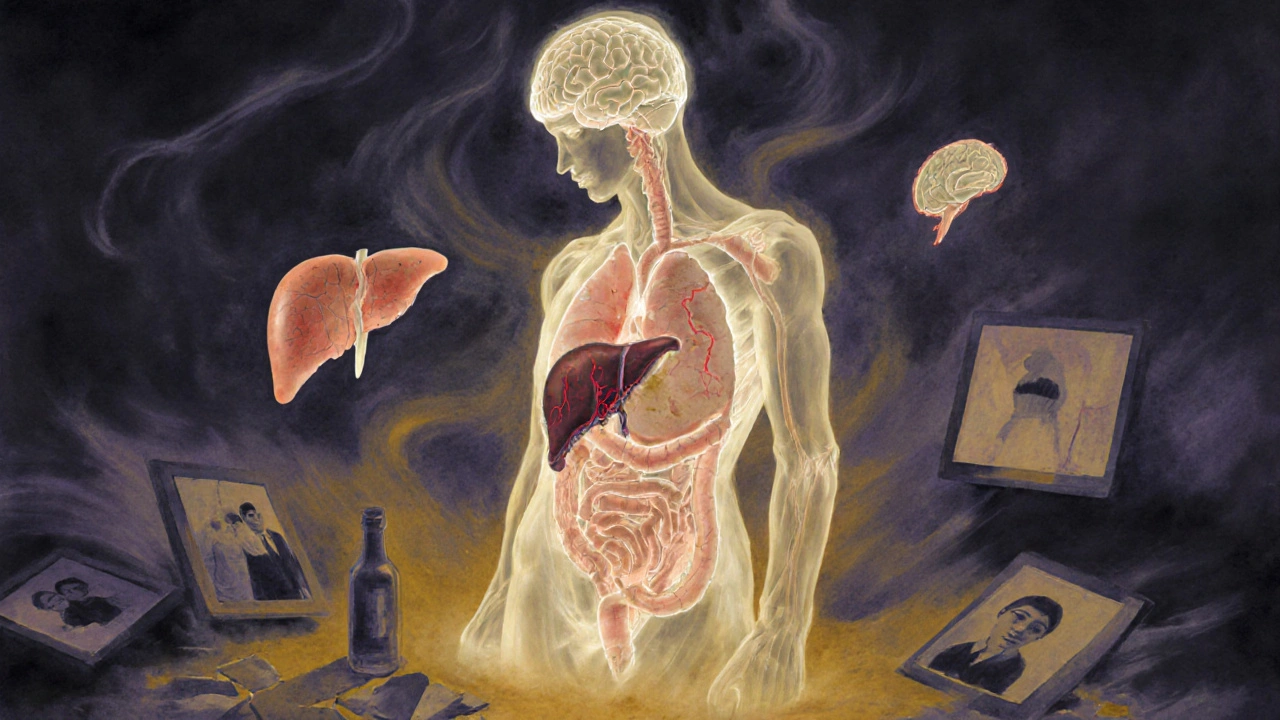Alcohol Withdrawal: Symptoms, Risks, and How to Manage It Safely
When someone who drinks heavily stops suddenly, their body doesn’t just adjust—it alcohol withdrawal, a physical and psychological reaction to stopping alcohol after prolonged use. Also known as alcohol detox syndrome, it’s not just feeling shaky or anxious. It’s your nervous system, used to being suppressed by alcohol, going into overdrive. This isn’t a mild inconvenience. For some, it can be life-threatening. That’s why understanding what’s happening matters—not just for the person going through it, but for anyone supporting them.
Alcohol dependence, a condition where the body relies on alcohol to function normally doesn’t happen overnight. It builds over months or years. And when you stop, your brain is still expecting the drug. That’s when symptoms start: sweating, nausea, tremors, trouble sleeping. Within 6 to 48 hours, things can get worse—hallucinations, seizures, or a rare but deadly condition called delirium tremens, a severe form of alcohol withdrawal marked by confusion, rapid heartbeat, and high blood pressure. These aren’t myths. They’re documented medical realities.
Not everyone gets severe symptoms, but you can’t guess who will. That’s why trying to quit alone at home is risky. Medical supervision during detox, the process of removing alcohol from the body under professional care can mean the difference between recovery and crisis. Medications like benzodiazepines are often used to calm the nervous system. But detox is just the first step. What comes after—support, therapy, lifestyle changes—is what keeps people sober long-term.
Recovery isn’t just about stopping drinking. It’s about rebuilding. Alcohol recovery, the ongoing process of healing physically, mentally, and socially after stopping alcohol use involves more than willpower. It’s about finding purpose, reconnecting with people, and learning new ways to cope. Volunteering, therapy, and support groups aren’t optional extras—they’re tools that help rewire the brain and reduce relapse risk. The posts below cover real strategies: how to recognize early signs, what to do if symptoms flare up, how medications help, and what actually works in long-term healing.
What you’ll find here isn’t theory. It’s what people have used to get through this. From managing sleep after quitting to understanding how your body changes over time, these guides give you the facts without fluff. If you or someone you care about is dealing with alcohol withdrawal, this is where to start—not with fear, but with clear, practical knowledge.


